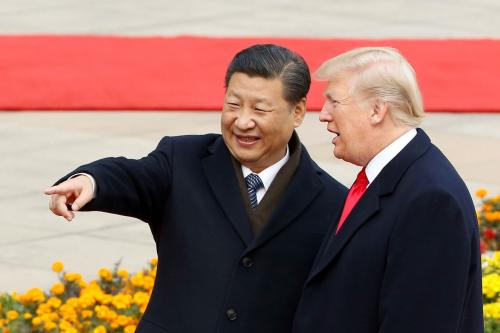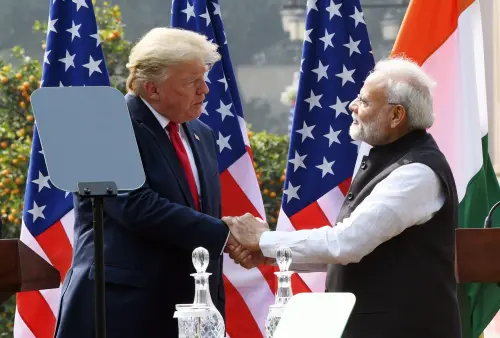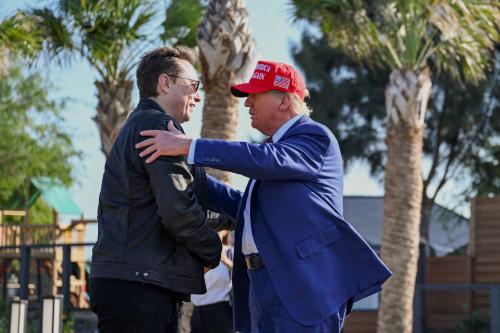The 2014 U.S.-Islamic World Forum is the first Forum held after the Egyptian military coup of July 3, 2013, a date which, at least for Islamists, will prove to be one of the defining political moments of recent decades.
While the ideological divide in the Arab world—over distinctive visions for society and different conceptions of the meaning and purpose of the nation-state—is very real, it is overlaid by a battle over the post-Arab Spring regional order. Saudi Arabia and the United Arab Emirates see the Muslim Brotherhood, and the strain of political Islam it represents, as an existential threat. This isn’t so surprising. The Brotherhood is the only region-wide force articulating an alternative religious legitimacy. Saudi Arabia, meanwhile, is the custodian of the two holy mosques, seeing itself as the seat of Sunni Islam. More importantly, its internal security is intrinsically tied to the religious legitimacy—based on history and theology—that it claims for itself.
Saudi Arabia believes, rightly, that it can manage, contain, and redirect Salafism, which in its various guises, can be quietist just as much as oppositional. There is a long-running strain in Salafi thought that prioritizes obedience to the ruler, regardless of his flaws—as long as he is Muslim. Which leaves the Brotherhood and its affiliates, which speak and—most problematically, for the Gulf states—act with a considerable degree of organizational coherence and purpose.
In her keynote address to the 2014 U.S.-Islamic World Forum on Monday, Assistant Secretary of State for Near Eastern Affairs Anne Patterson directly alluded to these regional tensions. She noted that “some people in this region conflate Islamists with terrorists and desire to eliminate the Islamists from the political scene,” and that “our difficult fight against violent extremists is made more complicated by this viewpoint.”
In March 2014, Saudi Arabia took the unprecedented step of designating the Muslim Brotherhood a terrorist organization, meaning that perceived support or even sympathy for the organization and its ideas can now be treated as a criminal act. Diverting counterterrorism resources to wage political battles against groups like the Brotherhood is obviously problematic and calls into question our reliance on Saudi Arabia as an effective counterterrorism partner. Counterterrorism depends on being able to identify and distinguish who the terrorists are—and who they aren’t. This is just one area where the Arab Spring has highlighted fundamental differences of opinion with longtime allies on questions of democracy, inclusion and the very notion of “stability.”
But, while Patterson’s comments are an important acknowledgement of real disagreements, the issue of the Brotherhood’s designation is not nearly as important to the Obama administration as it is to the Saudis, particularly when American officials are focused on ameliorating Saudi discontent over negotiations with Iran. However, this is not just about the Brotherhood. The broader trend of using the fight against violent extremism—a legitimate fight—to advance a politicized and divisive agenda is one that does not bode well for regional stability, something which can be seen quite clearly in an increasingly destabilized Egypt.
The Brookings Institution is committed to quality, independence, and impact.
We are supported by a diverse array of funders. In line with our values and policies, each Brookings publication represents the sole views of its author(s).



Commentary
U.S.-Saudi Tensions and the Problem of Politicizing Counterterrorism
June 10, 2014